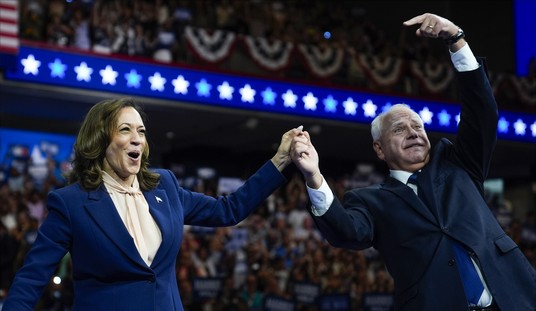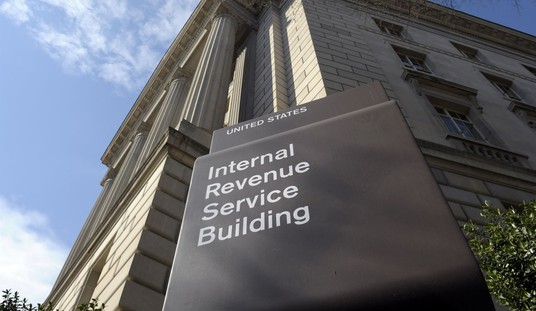What will happen to Barack Obama’s presidency if his tax compromise is shot down with the help of his own party? The House Democratic caucus just voted against it, which puts the deal on life support, at best. Can Obama recover from that?
One of the great questions of the past two years, ever since it became obvious that Democrats would suffer significant setbacks in the 2010 elections, was how President Obama would respond to life with a Republican Congress (or, as it turns out, a Republican House and a weakened Democratic majority in the Senate). On the one hand, you have the fact that Bill Clinton managed to use the “triangulation” strategy to win re-election in 1996, and surely Obama is capable of being equally cold-bloodedly dismissive of his now-depleted Congressional troops. On the other hand, Obama is naturally much more ideological than Clinton and doesn’t have Clinton’s deft political touch, his decade-long track record as an executive or his experience winning multiple elections outside deep-blue territory, all of which suggests that even if the spirit is willing, Obama may not be competent at executing the same strategy.
Bowing to the results of the 2010 election, Obama has taken at least some tentative, temporary steps towards accomodation with the center. The first of these, which already irritated his base, was the announcement of a “pay freeze” for federal workers (actually just a freeze on annual cost-of-living salary adjustments). Now, he’s struck a deal that gives GOP leadership nearly everything it had asked for on taxes – a two-year extension of all the Bush income tax rate cuts, a payroll tax cut, and a lower estate tax than what would return under current law after the 2010 moratorium in the tax, all in exchange for extending unemployment benefits as far out as three years for some recipients.
Now, both liberals and conservatives are up in arms against the deal, and it’s hard to see how it passes even the House when the Democratic caucus is against it. What happens if the deal falls through?
The merits of the deal, from the GOP side, are debatable. What’s really needed to kick-start the economy is to improve the long-term returns on investment, and more temporary tax cuts aren’t going to help that any more than the “stimulus” did, because you can’t plan long-term investments around two years of tax policy. On the other hand, tax hikes right now would be a very bad thing, so while the tax cut extension isn’t going to help, failing to extend the cuts would only make things worse. As for extending unemployment benefits, anyone with basic knowledge of human nature knows that many people will work harder to find new work if their benefits are ending, so you’re laying out a bunch more cash for a net economic negative. I’m in the camp that accepts that lengthy unemployment benefits can certainly be justified, and conservatives have better and more politically feasible targets to take on government spending, but you have to start by acknowledging the costs of the extension. Anyway, from a conservative perspective, the deal may not be great but it’s hard to see how the GOP could get a better deal right now, while still not in control of any House of Congress, and while a better deal might be doable in January, that’s a risky play.
From the liberal perspective, the deal stinks – opposition to the Bush tax cuts has been an article of faith on the Left for a decade, and more broadly speaking, reductions in the top marginal tax rates has been anathema to liberals since Reagan. The case in its favor is that the deal breaks the legislative logjam (the GOP is holding up the entire lame duck session over taxes) at only temporary cost, and like the pay freeze does nothing to obstruct the long-term growth of government at the expense of the private sector.
At any rate, the incensed reaction from quarters like Keith Olbermann and Rachel Maddow has liberal/progressive activists aflame, and with the House vote there appears now a real chance that Obama – who is furiously trying to sell the deal, with his whole White House communications operation touting it – won’t be able to deliver enough votes from his own party to pass both Houses, putting him at the mercy of conservative hardliners like Jim DeMint who argue that the deal should be scuttled in favor of a new round of negotiations in January after the GOP assumes control of the House.
Obama has assumed thus far that getting the deal passed over outraged opposition from the Left will only help him, in the way that welfare reform did for Clinton, but without having to swallow any policy changes that last past 2012 – it will make him look more moderate, he’s counting on liberals hating the next GOP nominee too much to stay home in 2012, and he knows that he faces no real risk of a primary challenge because African-American voters will remain a loyal firewall in the primaries no matter what he does.
But as I wrote of George W. Bush in the aftermath of the somewhat similar collapse of the Harriet Miers nomination, it’s always foolhardy to pick a fight in politics without considering whether it’s a fight worth losing, and ultimately harder to win if everybody knows you can’t afford to lose. Obama has already incurred all the costs of winning this battle – he showed a new willingness to cave in to the GOP, and enraged his base. Both of those things will be true whether the compromise package passes or not. But if the deal is tanked by the likes of Bernie Sanders and Barney Frank, where does that leave Obama? I’m sure I’m forgetting someone, but I can’t recall another President who cut a major bipartisan deal on a major legislative priority in his first term and had it collapse; the two major first-term failures that come to mind (Clinton’s healthcare plan and BTU tax) had no significant GOP support. Bush, you’ll recall, went to great lengths to get No Child Left Behind and Medicare Part D passed, and his legislative disasters – Miers, Dubai Ports, Social Security, immigration – were all in his second term.
The obvious lesson, if the deal collapses, will be that Obama can’t deliver anything – he can be pushed into compromise with GOP priorities, as he wouldn’t before the election, but he can’t bring along his own caucus, which has suffered so many losses for following his lead. Liberals will learn that they are better off striking their own distance from an unpopular and increasingly impotent leader. And heavy liberal opposition to the deal will make it impossible to blame DeMint or Republicans for the collapse, and will encourage conservatives to push for even fewer compromises with Obama in 2011. That calculus of legislative forces will make it hard for Obama to plan for the other leg of the Clinton strategy, a budget battle in which the GOP blinks. Obama can try to use the whole mess to argue that “Washington is broken” and all that, but it’s a hard argument to make from the Rose Garden.
By failing to ensure ahead of time the support of his own caucus, President Obama may have shot himself in the foot in dealing with the Republican-controlled House even before the new majority is sworn in.













Join the conversation as a VIP Member